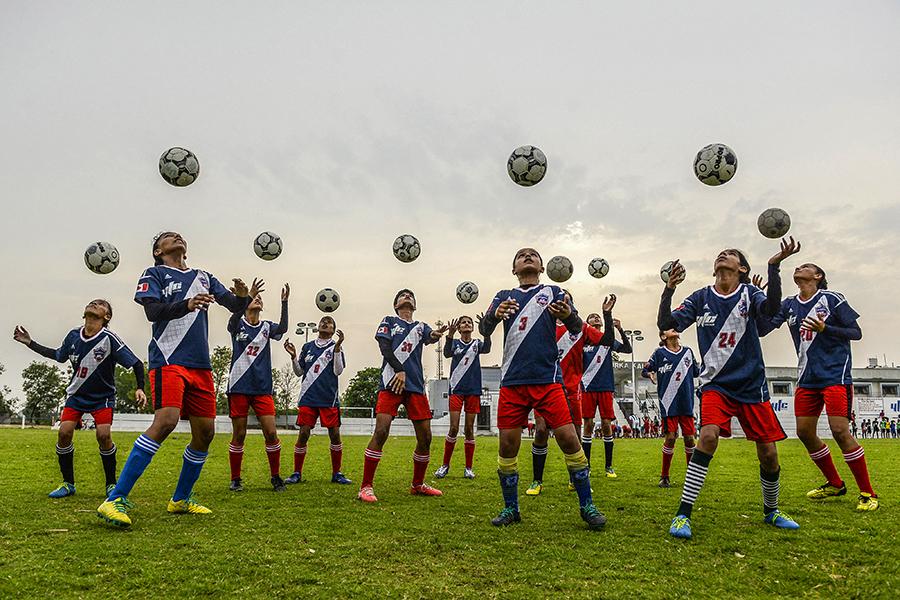Curated by the Knowledge Team of ICS Career GPS
Education

Peer pressure as a positive reinforcement tool
Excerpts from article by Pearl Tiwari, published in Forbes
Adolescence is one of the most critical periods in human development. Risky behaviours and negligence in youth can have long-term consequences, especially on one’s health. Nearly two-thirds of premature deaths and one-third of the total disease burden in adulthood are associated with conditions or behaviours initiated in one’s youth.
Adolescence is a crucial phase for inculcating the appropriate health behaviours and attitudes, which will then have long-term positive impacts.
How healthy are our adolescents?
A majority of adolescents in India live in the rural parts of the country and experience a variety of health problems. This will most certainly affect not only their productivity but the future of our country as well.
For example, there is widespread ignorance about menstruation and menstrual hygiene among girls. There’s also next-to-nil awareness about reproductive health, which leads to high-risk sexual behaviour at a very young age. Then there are nutritional disorders such as anemia, especially among teenage girls. Tobacco and alcohol consumption as well as other forms of substance abuse are also widely prevalent.
In urban areas, there’s a rise in obesity among young people due to poor dietary habits, stress and mental health issues.
The power of peers
Critical habits and behaviours are formed during adolescence in imitation of peers. One of the most important sources of information for adolescents are their peers. Thus, harnessing the power of peers through peer education can promote healthy habits, and positive attitudes and behaviours among the youth.
Studies show that by building a strong peer relationship with the youth, peer educators can provide the very critical psycho-social support that the youth so desperately need, discussing concerns they consider a taboo.
Making peer education an effective strategy
Informal, interactive strategies such as observing marker days (e.g. World Tobacco-Free Day) and organising competitions and games work very effectively because they hold great appeal for the adolescents.
Informal strategies, when coupled with the more formal ones such as awareness sessions by doctors and follow up sessions by peer educators, can yield even better results.
Peer education works better when it is delivered through the school system but can be propagated very effectively through WhatsApp groups and health functionaries too.
At the heart of any peer education programme is the appropriate identification and selection of peer educators and the depth of training provided to them.
There are certain universal qualifications and requirements for peer educators, like:
- Having a socio-cultural background similar to the target group and be respected by them.
- Having a non-judgmental attitude towards others, self-confidence and leadership potential.
- Good communication skills
- Empathy and the ability of active listening
- Most importantly, peer educators should be positive and healthy role models themselves.
For peer educators to be effective and motivated, their training needs to be continuously reinforced.
Career

How to manage your anger and frustration at work
Excerpts from article by Nurhuda Syed, published in hcamag.com
It’s a difficult time to be a leader and it’s okay if things are starting to get to you, professionally or personally.
The best way to manage your anger or frustration at work is through some self-awareness and honesty. If you feel like you’re losing grip of a situation at work, take the time to reflect on your life and the issues you’re handling.
If you engage in some self-reflection, you’ll realise that the people you work with are not the root cause of your troubles and should not be at the receiving end of a blowout. They’re at work to collaborate and innovate with their teammates – just like you.
If they make mistakes at work, it’s never personal, and as a leader, you should consider that they may be having a hard time themselves. Try to see them as individuals who have their own issues. This could be a first step to managing your anger at work.
Here are some simple steps professionals can take to manage their frustrations at work
1. Be conscious of your behaviour and words
It’s best to acknowledge that bad days are bound to happen at work. In this case, the person should take a breath and communicate their frustrations with the rest of the team. Instead of expressing your anger just express what you’re feeling.
You can also ask for help. Do your best to keep your voice calm and consistent. Your team members and employees will then be more open to help you manage the situation.
2. Understand where your anger is coming from
You could be feeling overwhelmed or out of control. It could even be a case of repressed pain or fear from your personal life.
Leaders reflect on the experience by taking some time out of a workday and doing a relaxing activity. You could go for a walk, a run, or engage in some form of exercise. You could even meditate and surround yourself with some calming sounds like the sounds of nature to clear your mind and try to decipher the cause of your problems.
Self-care: Prioritise your mental health
We take care of our bodies, exercise, eat very healthily and clean our houses, but then we don’t take the time to clean our minds and our energy from all the dirt, frustrations and stressors that we’ve had throughout the day.
Take just 10 to 15 minutes a day to cleanse your mind, body and energy – and just push away things that are not loving to you. This is especially crucial in the current times.
The pandemic has been horrible for humanity, but if we manage to go beyond all the difficult aspects of the pandemic and focus on what we need to learn and how we need to transform on a mental and emotional level, we can learn from this difficult situation.
(Disclaimer: The opinions expressed in the article mentioned above are those of the author(s). They do not purport to reflect the opinions or views of ICS Career GPS or its staff.)
Like this post? For more such helpful articles, click on the button below and subscribe FREE to our blog.




